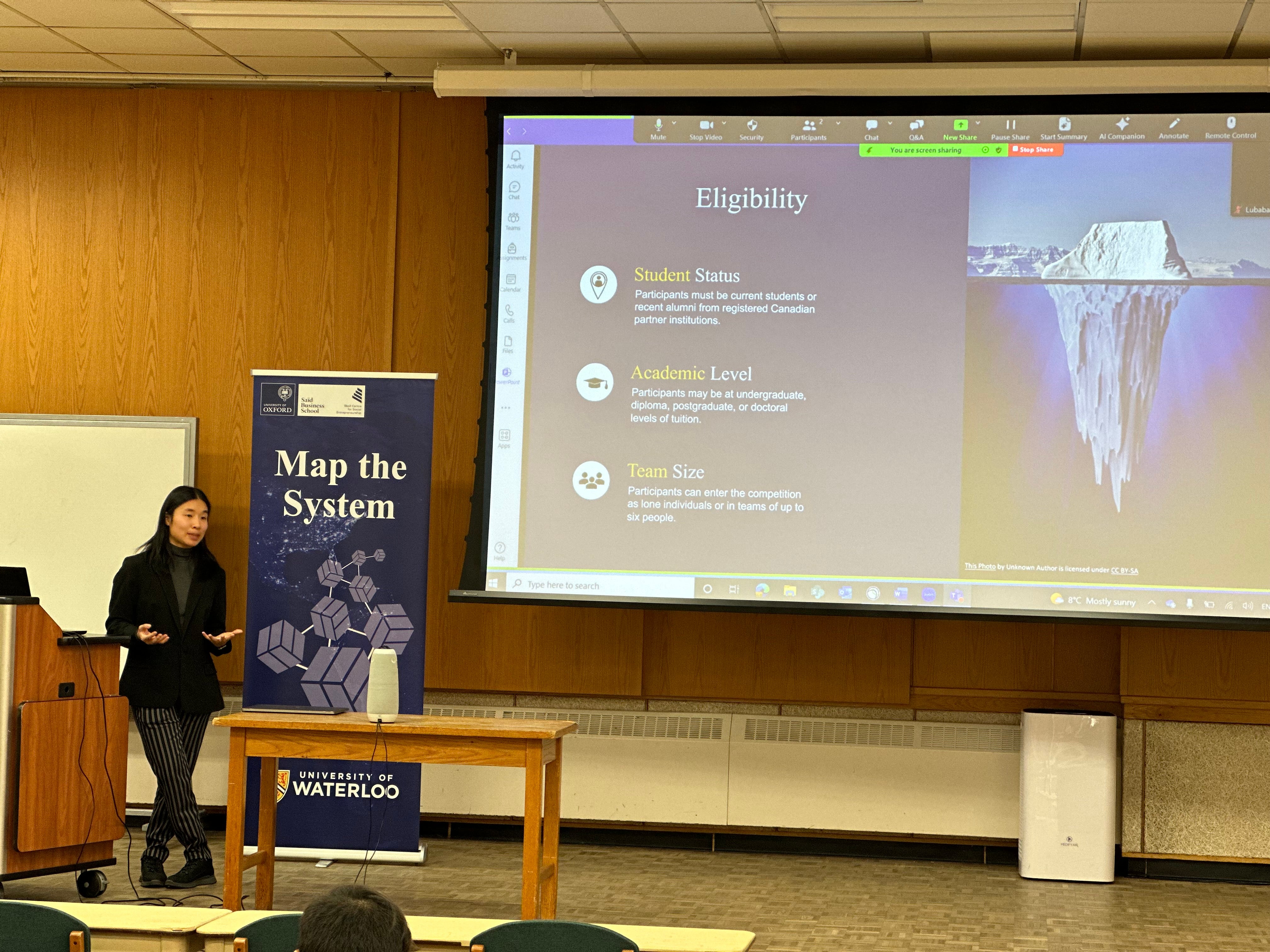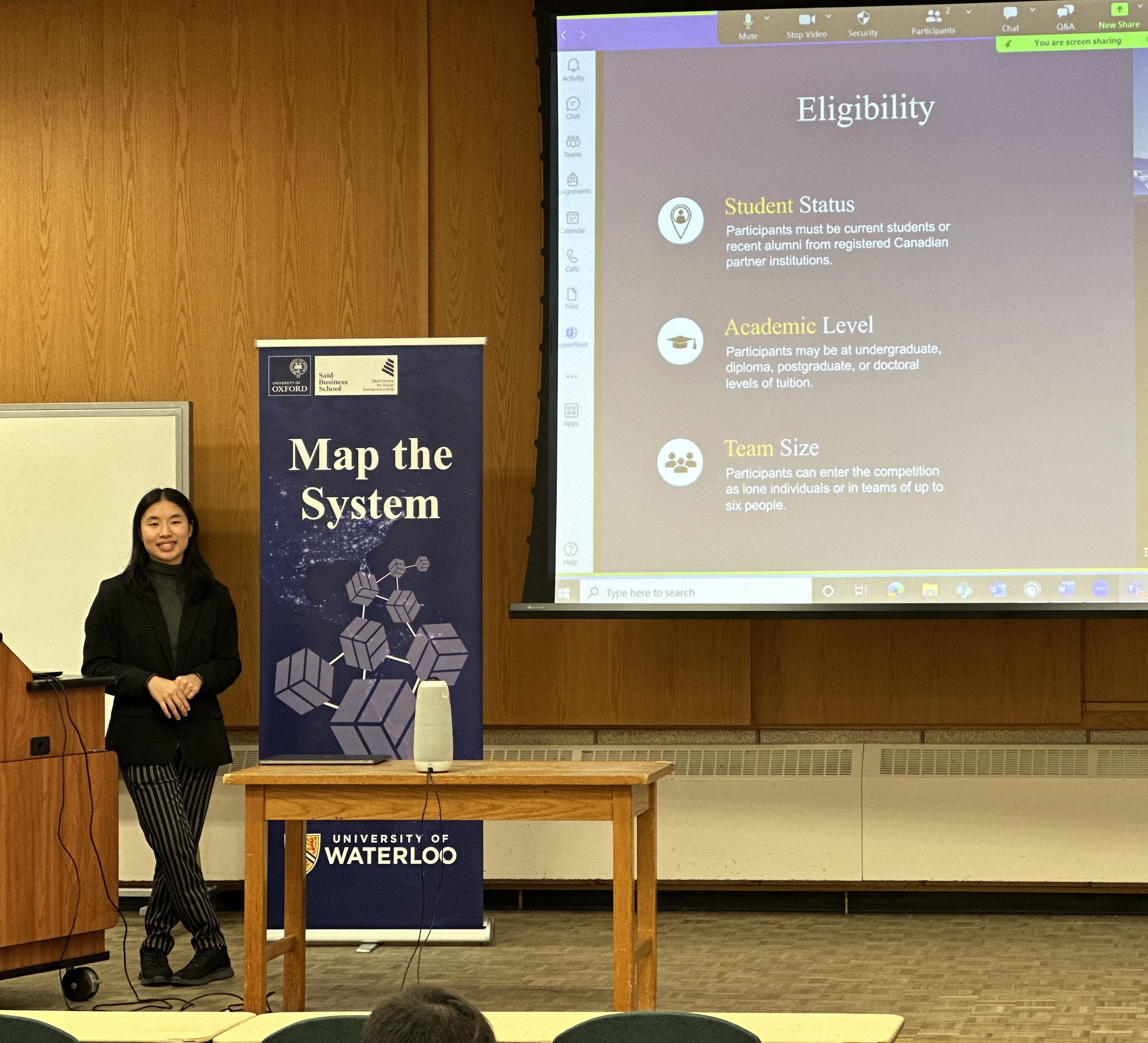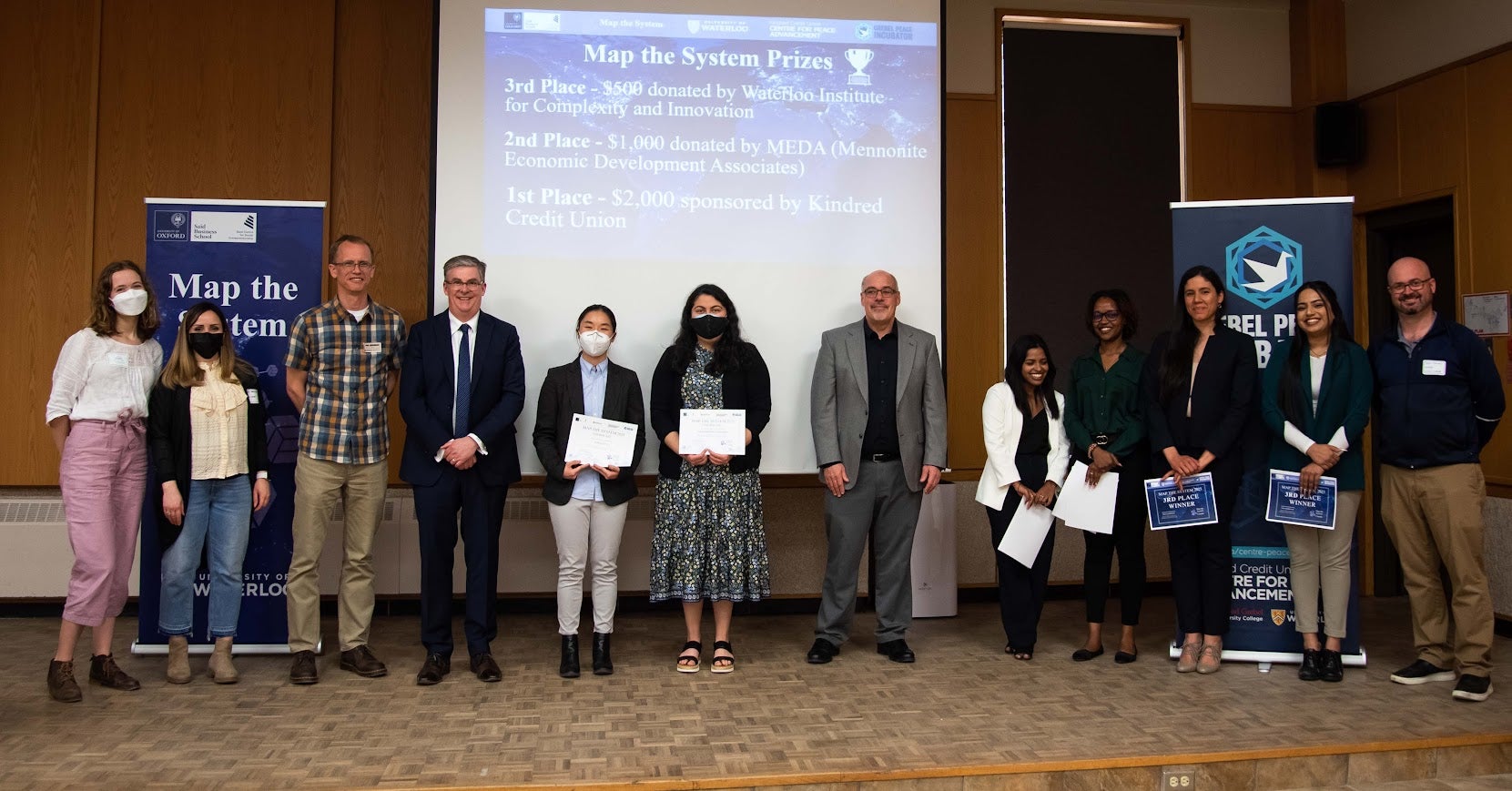As the end of 2023 looms, the Kindred Credit Union Centre for Peace Advancement team is hard at work preparing for the 2024 edition of the Map the System competition. Jordan Li, a 4th year student at the University of Waterloo and active member of the Conrad Grebel University College community, is serving as this year’s Map the System Campus Lead, and is eager to share insights from her experience competing in the past.
Map the System is a system-thinking research competition that offers students an opportunity to map out a complex social or environmental issue of their choosing, inspiring them to understand and build upon approaches that address the problem. The competition is open to both undergraduate and graduate students in all faculties, and this is the sixth year that the Centre for Peace Advancement has facilitated this opportunity at the University of Waterloo.
"I found my team through a combination of my formal courses and through reaching out to the 2023 Map the System Campus Lead, Elham Mohammadi," shared Jordan, who is majoring in Environmental Science.

Each student team investigates a unique topic of their passion, pertaining to an environmental or social issue that can be addressed through systems thinking – a way of thinking that examines the whole of a problem rather than its isolated parts. "My group's topic was wetland management in Durham Region. It was broadly related to addressing the impact of the Government of Ontario’s Bill 23 – ‘More Homes Built Faster Act.’ This bill threatened protected wetlands in the Green Belt with the development of thousands of homes,” Jordan explained. “My team wanted to propose a solution that encompassed an environmental science, environmental policy, and a civil and transportation engineering perspective," Jordan added.

The research period for most teams begins after registration closes at the end of January and ends at the beginning of April, giving participants several months to complete their research. "Parts of the research process included brainstorming the problem, thinking about possible solutions, and thinking about the unknowns of the landscape of a problem,” Jordan continued. "We did some broad research on our topic, looking at what academia and current news coverage was on the topic. A large part of learning about our topic was reaching out to experts on campus who knew more about the sphere of wetland management."
After their research was completed, l Jordan and her teammates submitted a systems map and a summary report of their findings. “We were lucky enough to be selected to participate in the campus finals in April, where we did a verbal presentation of our systems map and findings,” Jordan noted.
Jordan, and teammates, Adriana Ceric, and Sukhmani Sadiora, won first place last year. “We were surprised to find out we were in first place, given the strength of the other presentations. From there, we had the opportunity to be mentored by the Waterloo Map the System team and a supporter from the collaborative organization, Kindred Credit Union. After refining our analysis, we presented our findings at a national level, at the semi-finals."
Though they did not take home the first-place prize at Map the System Canada, Jordan expressed her gratitude for the experience.: "Working with my colleagues was my favourite part. I got to see how different academic disciplines approached research and learn how my own understanding of a topic could be enhanced through those approaches."
Map the System provides participants with a unique chance to learn and develop their research approaches and problem-solving abilities in a competitive and collaborative environment. "I thought the solution to the problem was removing the Bill 23 altogether, when in reality, we discovered ways to adjust it so that it accounted for stakeholders and the environment. It taught me not to just jump to conclusions and solutions, and instead to systematically consider the gaps in my own knowledge and perspectives," Jordan said.

Jordan encourages interested students to enter this year’s Map the System competition and think about how they can effectively examine and respond to a problem. "I think everyone can benefit from critically assessing the gaps in their own knowledge. I think a lot of the problems we face today can be traced back to people not evaluating these gaps, and thus the current solutions we're proposing to complex social and environmental problems do not take this into consideration."
As UWaterloo’s Map the System Campus Lead this year, Jordan supports participants and guides them to helpful resources. “I'm looking forward to facilitating the connections between participants and University of Waterloo community partners, and running workshops for competition participants to help them map their problem."
University of Waterloo students who want to learn more about Map the System 2024 can reach out to Jordan via email: mapthesystem@uwaterloo.ca or visit the Map the System website: https://uwaterloo.ca/centre-peace-advancement/student-engagement/map-system.